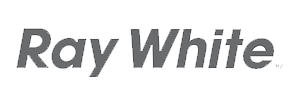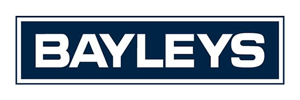 If you’re looking at breaking into the property market, there are two things you need to worry about. Firstly, the capital need to make good investments. Secondly, the terminology so you can tell what others are talking about. This handy glossary of property investment terms will make buying, leasing, and selling homes that much easier.
If you’re looking at breaking into the property market, there are two things you need to worry about. Firstly, the capital need to make good investments. Secondly, the terminology so you can tell what others are talking about. This handy glossary of property investment terms will make buying, leasing, and selling homes that much easier.
A
Act of God - A big natural event like rain, lightening, earthquakes or floods. Most insurance policies don’t cover damage or losses caused by ‘Acts of God,’ so it pays to check and ask specifically.
Amenity – A feature that enhances the attractiveness, occupant's or user’s satisfaction and possibility the value of a property. For example, scenic views, proximity to public transport, shopping or recreational facilities.
Amortise – Regular payments to repay a mortgage that cover both Principal and Interest.
Appraisal – A formal analysis of a property’s estimated value, as prepared by a qualified appraiser or valuer. You can tell they’re accredited if they have a “B Prop” or “Dip Valuation” qualification.
Appreciation – An increase in the property value due to supply and demand or market conditions.
Asking Price – The price a property is valued at or listed for may not always be the selling price. There might be room for negotiation.
Assignment – Transferring a mortgage or a lease from one person to another.
Auction - A public property or real estate sale where the highest bidder wins, providing the vendor’s reserve has been reached.
Read more: Is an auction the best way to sell a house?
B
Balloon Payment - A large lump-sum payment onto a loan to clear a debt.
Beneficiary - The person who receives benefits or income from a trust, estate, or deed of trust.
Bi-Weekly Payment Mortgage – Instead of the standard monthly payment schedule, this mortgage requires debt repayments every fortnight. Bi Weekly payments are equal to roughly one half of the monthly payments required if the loan were for a standard 30 year fixed-rate mortgage, and the result is substantial savings in interest.
Body Corporate - An administrative organisation made up of all or some of the owners of units in an apartment building. The Body Corporate committee is elected by the owners to maintain and look after the whole site.
Bridging Loan – A short-term, usually high-interest loan to cover the financial shortfall between buying a new property and selling an existing one.
Building Code - Your Local City or Regional council has regulations and guidelines that control the design, construction, and materials used to build or renovate a property.
Business Day - A standard working day, typically 9am - 5pm and excludes weekends and public holidays.
Buyers’ Market – Property supply outweighs demand, so advantages shift to the buyer.
C
Capital – Money used to create income, the accumulated wealth of a person or business, or a business’ net worth represented by its assets.
Capital Gain - The gain on the sale of a capital asset.
Cash Flow - Measuring how much cash is coming in in earnings and going out in expenditure. Positive cash flow means more money is flowing in than going out. Negative cash flow is the opposite.
Caveat - A warning on a property title to be aware of. Also notice that a third party may be interested in the same property.
Certificate of Title - A description of a property, including the name of the registered owner(s), mortgages, and property rights. The vendor must produce it before the sale of a property.
Chattels – Personal items that can be removed from a property. Most sales will include the stove, curtains, drapes, and light fittings. Unless chattels are specified in the agreement, they are not included with the property.
Commission - A proportion of the sale price of a property paid to a real estate agent for negotiating the deal. Usually a percentage, rather than a flat rate.
Common Property - An area of land or of a building that are shared by all property holders. For example, a driveway or the laundry in an apartment block.
Conditional Agreement – A legal contract subject to certain conditions being met. For example, you will purchase a property provided your existing property is sold. See: Special Conditions in a Sale & Purchase Agreement.
Covenant - Terms, conditions, and restrictions on the property, noted in the deed or title. It may affect what the property can be used for or how it can be sold in future.
Credit History - A record of a person’s current and repaid debts, usually going back 7 years, used by a lender to assess the risk of a potential borrower.
Cross Lease – Common in tenement blocks of flats. Everyone on the property owns the land and you each less your home. Similar to a freehold property with a few more restrictions.
D
Deed - A legal document showing the title and owners of a property.
Default - Failing to keep up with mortgage payments or other requirements.
Deposit - A lump sum payment based on the percentage of the purchase price used to gain a mortgage or bind a property sale.
Depreciation – A decline in property value due to market conditions or other factors.
E
Easement - A right of someone to use the land that’s owned by someone else. For example, the local council may have a sewerage easement across part of your property. If repairs or maintenance on the line are needed, they can gain access to your property to carry them out.
Encroachment - Part of a house or property that illegally hangs over another property. Check fences and boundary lines, or extensions and add-ons to a property.
Equity – The amount of property actually owned. Basically the difference between a property’s market value and the amount still owed on the mortgage.
Estate - The total of all property, real estate and personal effects owned by a person when they die.
Eviction - Legally removing the owner, occupant, or tenant from a property.
Exclusive Listing / Sole Listing - A written contract that allows a real estate agent to sell a property within a specified time period.
F
Fiduciary – Someone acting on behalf of a trustee. Real estate agents are considered fiduciaries in property transactions.
Fittings - Objects that can be removed from a property without causing damage to it. For example, the TV, fridge, washing machine etc.
Fixtures - Fixed items that cannot be removed from a property without causing damage. For example, shelves, cupboards etc.
Foreclosure – When a property owner can’t keep up with mortgage payments, and the property is sold to service the remaining debt.
G
Gearing - The ratio of how much of your own money and how much you have borrowed is going into an investment.
Gross income - The total amount of your income before taxes are deducted.
Guarantor – A person who secures the holder of a loan in case they are unable to make repayments.
Understanding the contracts and terms your bank, real estate agent and mortgage broker are using is essential if you want to negotiate your way through the property market. Hopefully these terms are are a handy reference when you’re going through weighty legal documents. Read part 2 now.
Landlords – keen to know how to get the very best tenants for your investment property? Check out our FREE guide…










